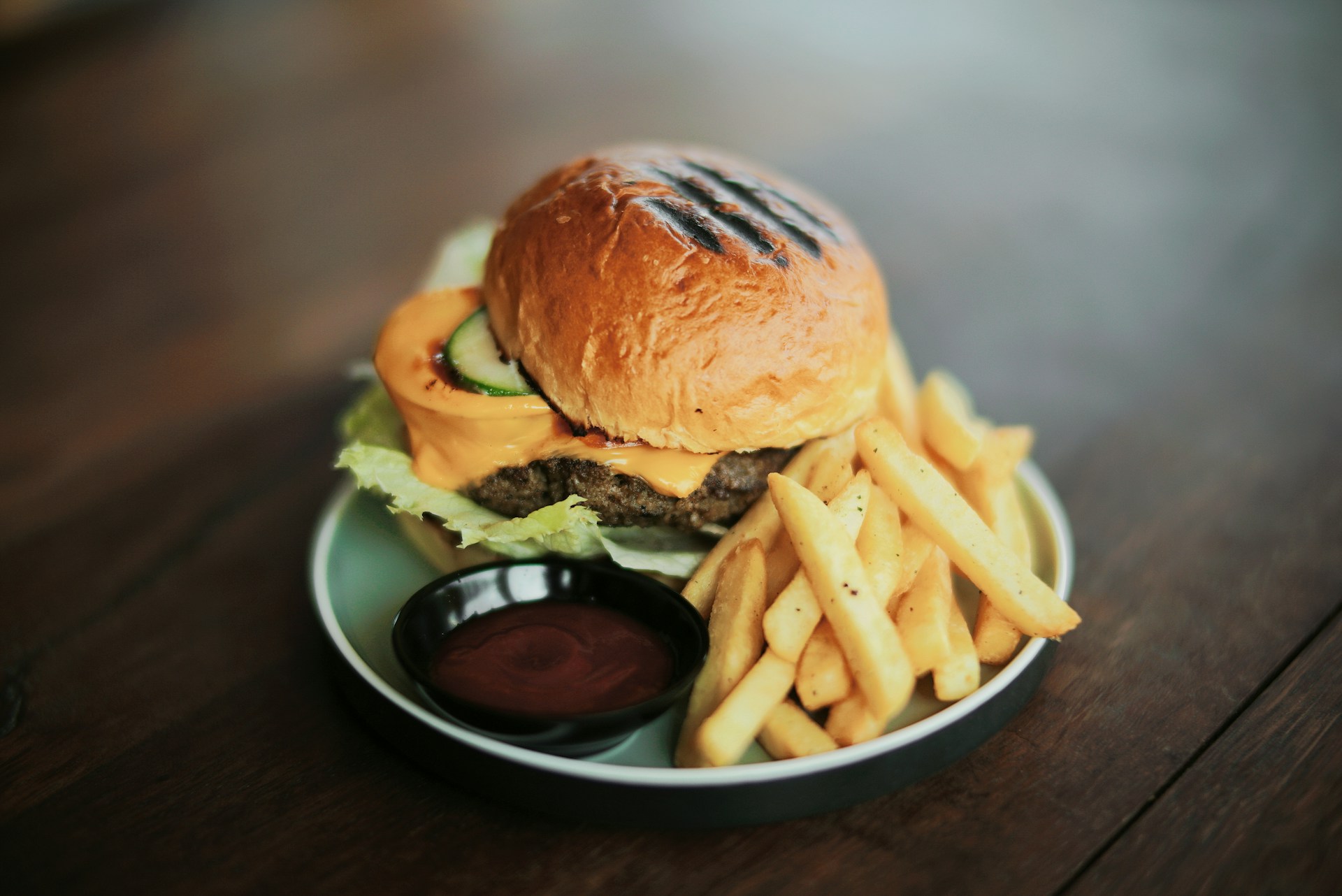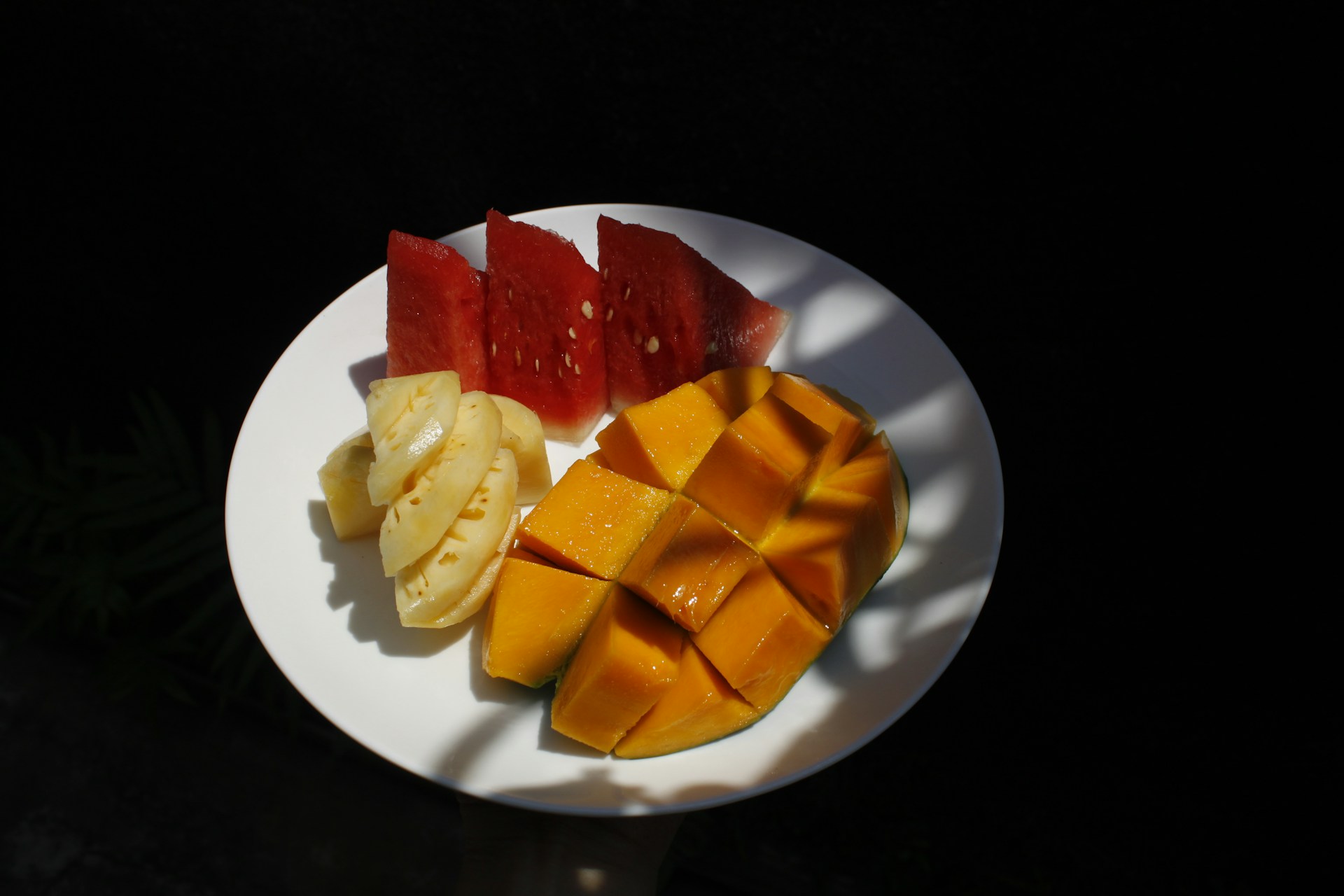Crafting Immunity: The Science of Prebiotic and Probiotic Roles in Child Health
Background: The gut microbiota influences Children's immune system, which interacts with the immune system to support a healthy body. Prebiotics and probiotics, as well as the combination of both in the form of synbiotics, have been shown to have great potential in improving immune health in children.
Objectives: This article aims to review the role of prebiotics, probiotics, and synbiotics in supporting children's immune health. Specifically, it discusses their mechanisms of action, clinical evidence of benefits, and their impact on reducing infection risk, improving gut health, and enhancing vaccine effectiveness. The review also highlights the safety profile and future directions, including personalized approaches to optimize their use.
Methods: A comprehensive literature review was conducted using recent studies and clinical trials on the effects of prebiotics, probiotics, and synbiotics on pediatric immune health.
Discussions: Prebiotics, probiotics, and synbiotics play a vital role in supporting pediatric immune health by improving gut microbiota balance and producing beneficial metabolites like SCFAs, which enhance gut barrier function and modulate immune responses. Prebiotics provide essential nutrients for beneficial bacteria, probiotics directly interact with immune cells, and synbiotics synergistically combine these benefits, demonstrating effectiveness in reducing infections, enhancing vaccine responses, and preventing allergies. Clinical studies highlight their potential to improve gastrointestinal health, reduce inflammation, and strengthen immunity, emphasizing their importance as safe and effective interventions for children's health.
Fragkou, P. C., Karaviti, D., Zemlin, M. & Skevaki, C. Impact of Early Life Nutrition on Children’s Immune System and Noncommunicable Diseases Through Its Effects on the Bacterial Microbiome, Virome and Mycobiome. Front Immunol 12, 644269 (2021).
Buonocore, G. Microbiota and gut immunity in infants and young children. Global Pediatrics 9, 100202 (2024).
Xenopoulou, E., Kontele, I., Sergentanis, T. N., Grammatikopoulou, M. G., Tzoutzou, M., Kotrokois, K., Tsitsika, A. & Vassilakou, T. Biotics and Children’s and Adolescents’ Health: A Narrative Review. Children 11, 329 (2024).
Davani-Davari, D., Negahdaripour, M., Karimzadeh, I., Seifan, M., Mohkam, M., Masoumi, S. J., Berenjian, A. & Ghasemi, Y. Prebiotics: Definition, Types, Sources, Mechanisms, and Clinical Applications. Foods 8, 92 (2019).
Mazziotta, C., Tognon, M., Martini, F., Torreggiani, E. & Rotondo, J. C. Probiotics Mechanism of Action on Immune Cells and Beneficial Effects on Human Health. Cells 12, 184 (2023).
Darma, A., Dewi, D. K., Chandra, D. N., Basrowi, R. W., Khoe, L. C., Pratiwi, D. & Sundjaya, T. The Role of Prebiotic, Probiotic, and Synbiotic in Gut Microbiota and Gut Permeability in Children Affected by Air Pollution. Curr Nutr Food Sci 20, 1272–1281 (2024).
Li, X., Hu, S., Yin, J., Peng, X., King, L., Li, L., Xu, Z., Zhou, L., Peng, Z., Ze, X., Zhang, X., Hou, Q., Shan, Z. & Liu, L. Effect of synbiotic supplementation on immune parameters and gut microbiota in healthy adults: a double-blind randomized controlled trial. Gut Microbes 15, 2247025 (2023).
Wu, H. J. & Wu, E. The role of gut microbiota in immune homeostasis and autoimmunity. Gut Microbes 3, 4 (2012).
Kartjito, M. S., Yosia, M., Wasito, E., Soloan, G., Agussalim, A. F. & Basrowi, R. W. Defining the Relationship of Gut Microbiota, Immunity, and Cognition in Early Life—A Narrative Review. Nutrients 15, 2642 (2023).
Duan, H., Wang, L. J., Huangfu, M. & Li, H. The impact of microbiota-derived short-chain fatty acids on macrophage activities in disease: Mechanisms and therapeutic potentials. Biomedicine & Pharmacotherapy 165, 115276 (2023).
Belkaid, Y. & Hand, T. W. Role of the Microbiota in Immunity and inflammation. Cell 157, 121 (2014).
Yuan, C., He, Y., Xie, K., Feng, L., Gao, S. & Cai, L. Review of microbiota gut brain axis and innate immunity in inflammatory and infective diseases. Front Cell Infect Microbiol 13, 1282431 (2023).
Tlaskalová-Hogenová, H., Tpánková, R., Kozáková, H., Hudcovic, T., Vannucci, L., Tuková, L., Rossmann, P., Hrní, T., Kverka, M., Zákostelská, Z., Klimeová, K., Pibylová, J., Bártová, J., Sanchez, D., Fundová, P., Borovská, D., Rtková, D., Zídek, Z., Schwarzer, M., Drastich, P. & Funda, D. P. The role of gut microbiota (commensal bacteria) and the mucosal barrier in the pathogenesis of inflammatory and autoimmune diseases and cancer: contribution of germ-free and gnotobiotic animal models of human diseases. Cell Mol Immunol 8, 110 (2011).
Pantazi, A. C., Mihai, C. M., Balasa, A. L., Chisnoiu, T., Lupu, A., Frecus, C. E., Mihai, L., Ungureanu, A., Kassim, M. A. K., Andrusca, A., Nicolae, M., Cuzic, V., Lupu, V. V. & Cambrea, S. C. Relationship between Gut Microbiota and Allergies in Children: A Literature Review. Nutrients 15, 2529 (2023).
Yao, Y., Cai, X., Ye, Y., Wang, F., Chen, F. & Zheng, C. The Role of Microbiota in Infant Health: From Early Life to Adulthood. Front Immunol 12, 708472 (2021).
Kim, Y. T. & Mills, D. A. Exploring the gut microbiome: probiotics, prebiotics, synbiotics, and postbiotics as key players in human health and disease improvement. Food Science and Biotechnology 2024 33:9 33, 2065–2080 (2024).
Wiertsema, S. P., van Bergenhenegouwen, J., Garssen, J. & Knippels, L. M. J. The Interplay between the Gut Microbiome and the Immune System in the Context of Infectious Diseases throughout Life and the Role of Nutrition in Optimizing Treatment Strategies. Nutrients 13, 886 (2021).
Zheng, D., Liwinski, T. & Elinav, E. Interaction between microbiota and immunity in health and disease. Cell Research 2020 30:6 30, 492–506 (2020).
Lau, C. M. & Sun, J. C. The widening spectrum of immunological memory. Curr Opin Immunol 54, 42–49 (2018).
Al Nabhani, Z. & Eberl, G. Imprinting of the immune system by the microbiota early in life. Mucosal Immunol 13, 183–189 (2020).
Fadlyana, E., Soemarko, D. S., Endaryanto, A., Haryanto, B., Darma, A., Dewi, D. K., Chandra, D. N., Hartono, B., Buftheim, S., Wasito, E., Sundjaya, T. & Basrowi, R. W. The Impact of Air Pollution on Gut Microbiota and Children’s Health: An Expert Consensus. Children (Basel) 9, (2022).
Endaryanto, A., Darma, A., Sundjaya, T., Masita, B. M. & Basrowi, R. W. The Notorious Triumvirate in Pediatric Health: Air Pollution, Respiratory Allergy, and Infection. Children 10, (2023).
Netea, M. G., Schlitzer, A., Placek, K., Joosten, L. A. B. & Schultze, J. L. Innate and Adaptive Immune Memory: an Evolutionary Continuum in the Host’s Response to Pathogens. Cell Host Microbe 25, 13–26 (2019).
Ney, L. M., Wipplinger, M., Grossmann, M., Engert, N., Wegner, V. D. & Mosig, A. S. Short chain fatty acids: key regulators of the local and systemic immune response in inflammatory diseases and infections. Open Biol 13, 230014 (2023).
Arpaia, N., Campbell, C., Fan, X., Dikiy, S., Van Der Veeken, J., Deroos, P., Liu, H., Cross, J. R., Pfeffer, K., Coffer, P. J. & Rudensky, A. Y. Metabolites produced by commensal bacteria promote peripheral regulatory T-cell generation. Nature 2013 504:7480 504, 451–455 (2013).
Balmer, M. L., Ma, E. H., Bantug, G. R., Grählert, J., Pfister, S., Glatter, T., Jauch, A., Dimeloe, S., Slack, E., Dehio, P., Krzyzaniak, M. A., King, C. G., Burgener, A. V., Fischer, M., Develioglu, L., Belle, R., Recher, M., Bonilla, W. V., Macpherson, A. J., Hapfelmeier, S., Jones, R. G. & Hess, C. Memory CD8(+) T Cells Require Increased Concentrations of Acetate Induced by Stress for Optimal Function. Immunity 44, 1312–1324 (2016).
Hsu, C. Y., Khachatryan, L. G., Younis, N. K., Mustafa, M. A., Ahmad, N., Athab, Z. H., Polyanskaya, A. V., Kasanave, E. V., Mirzaei, R. & Karampoor, S. Microbiota-derived short chain fatty acids in pediatric health and diseases: from gut development to neuroprotection. Front Microbiol 15, 1456793 (2024).
Ji, J., Jin, W., Liu, S. J., Jiao, Z. & Li, X. Probiotics, prebiotics, and postbiotics in health and disease. MedComm (Beijing) 4, e420 (2023).
Gibson, G. R., Probert, H. M., Loo, J. Van, Rastall, R. A. & Roberfroid, M. B. Dietary modulation of the human colonic microbiota: updating the concept of prebiotics. Nutr Res Rev 17, 259–275 (2004).
Loo, J. Van, Coussement, P., De Leenheer, L., Hoebreg, H. & Smits, G. On the presence of inulin and oligofructose as natural ingredients in the western diet. Crit Rev Food Sci Nutr 35, 525–552 (1995).
Hegar, B., Wibowo, Y., Basrowi, R. W., Ranuh, R. G., Sudarmo, S. M., Munasir, Z., Atthiyah, A. F., Widodo, A. D., Supriatmo, Kadim, M., Suryawan, A., Diana, N. R., Manoppo, C. & Vandenplas, Y. The Role of Two Human Milk Oligosaccharides, 2′-Fucosyllactose and Lacto-N-Neotetraose, in Infant Nutrition. Pediatr Gastroenterol Hepatol Nutr 22, 330 (2019).
Gavzy, S. J., Kensiski, A., Lee, Z. L., Mongodin, E. F., Ma, B. & Bromberg, J. S. Bifidobacterium mechanisms of immune modulation and tolerance. Gut Microbes 15, 2291164 (2023).
Simon, E., Călinoiu, L. F., Mitrea, L. & Vodnar, D. C. Probiotics, Prebiotics, and Synbiotics: Implications and Beneficial Effects against Irritable Bowel Syndrome. Nutrients 13, 2112 (2021).
Pujari, R. & Banerjee, G. Impact of prebiotics on immune response: from the bench to the clinic. Immunol Cell Biol 99, 255–273 (2021).
Selvamani, S., Kapoor, N., Ajmera, A., El Enshasy, H. A., Dailin, D. J., Sukmawati, D., Abomoelak, M., Nurjayadi, M. & Abomoelak, B. Prebiotics in New-Born and Children’s Health. Microorganisms 11, 2453 (2023).
Mirzaei, R., Bouzari, B., Hosseini-Fard, S. R., Mazaheri, M., Ahmadyousefi, Y., Abdi, M., Jalalifar, S., Karimitabar, Z., Teimoori, A., Keyvani, H., Zamani, F., Yousefimashouf, R. & Karampoor, S. Role of microbiota-derived short-chain fatty acids in nervous system disorders. Biomedicine & Pharmacotherapy 139, 111661 (2021).
Heinemann, U. & Schuetz, A. Structural Features of Tight-Junction Proteins. Int J Mol Sci 20, 6020 (2019).
Ma, J., Piao, X., Mahfuz, S., Long, S. & Wang, J. The interaction among gut microbes, the intestinal barrier and short chain fatty acids. Animal Nutrition 9, 159–174 (2022).
Fusco, W., Lorenzo, M. B., Cintoni, M., Porcari, S., Rinninella, E., Kaitsas, F., Lener, E., Mele, M. C., Gasbarrini, A., Collado, M. C., Cammarota, G. & Ianiro, G. Short-Chain Fatty-Acid-Producing Bacteria: Key Components of the Human Gut Microbiota. Nutrients 15, 2211 (2023).
Cox, M. A., Jackson, J., Stanton, M., Rojas-Triana, A., Bober, L., Laverty, M., Yang, X., Zhu, F., Liu, J., Wang, S., Monsma, F., Vassileva, G., Maguire, M., Gustafson, E., Bayne, M., Chou, C. C., Lundell, D. & Jenh, C. H. Short-chain fatty acids act as antiinflammatory mediators by regulating prostaglandin E(2) and cytokines. World J Gastroenterol 15, 5549–5557 (2009).
Omenetti, S. & Pizarro, T. T. The Treg/Th17 axis: A dynamic balance regulated by the gut microbiome. Front Immunol 6, 168417 (2015).
Cheng, H., Guan, X., Chen, D. & Ma, W. The Th17/Treg Cell Balance: A Gut Microbiota-Modulated Story. Microorganisms 7, 583 (2019).
Palomares, O., Yaman, G., Azkur, A. K., Akkoc, T., Akdis, M. & Akdis, C. A. Role of Treg in immune regulation of allergic diseases. Eur J Immunol 40, 1232–1240 (2010).
Goswami, T. K., Singh, M., Dhawan, M., Mitra, S., Emran, T. Bin, Rabaan, A. A., Mutair, A. Al, Alawi, Z. Al, Alhumaid, S. & Dhama, K. Regulatory T cells (Tregs) and their therapeutic potential against autoimmune disorders – Advances and challenges. Hum Vaccin Immunother 18, 2035117 (2022).
Shokryazdan, P., Faseleh Jahromi, M., Navidshad, B. & Liang, J. B. Effects of prebiotics on immune system and cytokine expression. Med Microbiol Immunol 206, (2017).
Arslanoglu, S., Moro, G. E. & Boehm, G. Early Supplementation of Prebiotic Oligosaccharides Protects Formula-Fed Infants against Infections during the First 6 Months of Life. J Nutr 137, 2420–2424 (2007).
Dewi, D. K., Adi, N. P., Prayogo, A., Sundjaya, T., Wasito, E., Kekalih, A., Basrowi, R. W. & Jo, J. Regular Consumption of Fortified Growing-up Milk Attenuates Upper Respiratory Tract Infection among Young Children in Indonesia: A Retrospective Cohort Study. Open Public Health J 17, (2024).
Dou, Y., Yu, X., Luo, Y., Chen, B., Ma, D. & Zhu, J. Effect of Fructooligosaccharides Supplementation on the Gut Microbiota in Human: A Systematic Review and Meta-Analysis. Nutrients 14, 3298 (2022).
Beleli, C. A. V., Antonio, M. A. R. G. M., Dos Santos, R., Pastore, G. M. & Lomazi, E. A. Effect of 4’galactooligosaccharide on constipation symptoms. J Pediatr (Rio J) 91, 567–573 (2015).
Wongkrasant, P., Pongkorpsakol, P., Ariyadamrongkwan, J., Meesomboon, R., Satitsri, S., Pichyangkura, R., Barrett, K. E. & Muanprasat, C. A prebiotic fructo-oligosaccharide promotes tight junction assembly in intestinal epithelial cells via an AMPK-dependent pathway. Biomedicine & Pharmacotherapy 129, 110415 (2020).
Nagafuchi, S., Yamaji, T., Kawashima, A., Saito, Y., Takahashi, T., Yamamoto, T., Maruyama, M. & Akatsu, H. Effects of a Formula Containing Two Types of Prebiotics, Bifidogenic Growth Stimulator and Galacto-oligosaccharide, and Fermented Milk Products on Intestinal Microbiota and Antibody Response to Influenza Vaccine in Elderly Patients: A Randomized Controlled Trial. Pharmaceuticals (Basel) 8, 351–365 (2015).
Liang, H., Zhang, Y., Miao, Z., Cheng, R., Jiang, F., Ze, X., Shen, X. & He, F. Anti-allergic effects of two potential probiotic strains isolated from infant feces in China. J Funct Foods 92, 105070 (2022).
Latif, A., Shehzad, A., Niazi, S., Zahid, A., Ashraf, W., Iqbal, M. W., Rehman, A., Riaz, T., Aadil, R. M., Khan, I. M., Özogul, F., Rocha, J. M., Esatbeyoglu, T. & Korma, S. A. Probiotics: mechanism of action, health benefits and their application in food industries. Front Microbiol 14, 1216674 (2023).
Wei, P., Yang, Y., Ding, Q., Li, X., Sun, H., Liu, Z., Huang, J. & Gong, Y. Oral delivery of Bifidobacterium longum expressing α-melanocyte-stimulating hormone to combat ulcerative colitis. J Med Microbiol 65, 160–168 (2016).
Ma, X., Shin, Y. J., Jang, H. M., Joo, M. K., Yoo, J. W. & Kim, D. H. Lactobacillus rhamnosus and Bifidobacterium longum alleviate colitis and cognitive impairment in mice by regulating IFN-γ to IL-10 and TNF-α to IL-10 expression ratios. Sci Rep 11, 20659 (2021).
Mei, L., Chen, Y., Wang, J., Lu, J., Zhao, J., Zhang, H., Wang, G. & Chen, W. Lactobacillus fermentum Stimulates Intestinal Secretion of Immunoglobulin A in an Individual-Specific Manner. Foods 11, 1229 (2022).
Kawashima, T., Ikari, N., Kouchi, T., Kowatari, Y., Kubota, Y., Shimojo, N. & Tsuji, N. M. The molecular mechanism for activating IgA production by Pediococcus acidilactici K15 and the clinical impact in a randomized trial. Sci Rep 8, 5065 (2018).
Breedveld, A. & Van Egmond, M. IgA and FcαRI: Pathological roles and therapeutic opportunities. Front Immunol 10, 444864 (2019).
Sousa-Pereira, P. de & Woof, J. M. IgA: Structure, Function, and Developability. Antibodies 2019, Vol. 8, Page 57 8, 57 (2019).
Ramos, A. C. S., Oliveira, L. M., Santos, Y. L. D. C. O., Dantas, M. C. S., Walker, C. I. B., Faria, A. M. C., Bueno, L. L., Dolabella, S. S. & Fujiwara, R. T. The role of IgA in gastrointestinal helminthiasis: A systematic review. Immunol Lett 249, 12–22 (2022).
Zheng, J., Ahmad, A. A., Yang, Y., Liang, Z., Shen, W., Feng, M., Shen, J., Lan, X. & Ding, X. Lactobacillus rhamnosus CY12 Enhances Intestinal Barrier Function by Regulating Tight Junction Protein Expression, Oxidative Stress, and Inflammation Response in Lipopolysaccharide-Induced Caco-2 Cells. Int J Mol Sci 23, 11162 (2022).
Anderson, R. C., Cookson, A. L., McNabb, W. C., Park, Z., McCann, M. J., Kelly, W. J. & Roy, N. C. Lactobacillus plantarum MB452 enhances the function of the intestinal barrier by increasing the expression levels of genes involved in tight junction formation. BMC Microbiol 10, 1–11 (2010).
Petrof, E. O., Kojima, K., Ropeleski, M. J., Musch, M. W., Tao, Y., De Simone, C. & Chang, E. B. Probiotics inhibit nuclear factor-κB and induce heat shock proteins in colonic epithelial cells through proteasome inhibition. Gastroenterology 127, 1474–1487 (2004).
LeBlanc, A. de M. de, Carmen, S. del, Zurita-Turk, M., Rocha, C. S., Guchte, M. van de, Azevedo, V., Miyoshi, A. & LeBlanc, J. G. Importance of IL-10 Modulation by Probiotic Microorganisms in Gastrointestinal Inflammatory Diseases. ISRN Gastroenterol 2011, 892971 (2011).
Huang, R., Xing, H. Y., Liu, H. J., Chen, Z. F. & Tang, B. B. Efficacy of probiotics in the treatment of acute diarrhea in children: a systematic review and meta-analysis of clinical trials. Transl Pediatr 10, 3248 (2021).
Zhao, Y., Dong, B. R. & Hao, Q. Probiotics for preventing acute upper respiratory tract infections. Cochrane Database Syst Rev 2022, CD006895 (2022).
Voigt, J. & Lele, M. Lactobacillus rhamnosus Used in the Perinatal Period for the Prevention of Atopic Dermatitis in Infants: A Systematic Review and Meta-Analysis of Randomized Trials. Am J Clin Dermatol 23, 801 (2022).
Enomoto, T., Sowa, M., Nishimori, K., Shimazu, S., Yoshida, A., Yamada, K., Furukawa, F., Nakagawa, T., Yanagisawa, N., Iwabuchi, N., Odamaki, T., Abe, F., Nakayama, J. & Xiao, J. Z. Effects of bifidobacterial supplementation to pregnant women and infants in the prevention of allergy development in infants and on fecal microbiota. Allergol Int 63, 575–585 (2014).
Peng, Y., Ma, Y., Luo, Z., Jiang, Y., Xu, Z. & Yu, R. Lactobacillus reuteri in digestive system diseases: focus on clinical trials and mechanisms. Front Cell Infect Microbiol 13, 1254198 (2023).
Dargenio, V. N., Cristofori, F., Brindicci, V. F., Schettini, F., Dargenio, C., Castellaneta, S. P., Iannone, A. & Francavilla, R. Impact of Bifidobacterium longum Subspecies infantis on Pediatric Gut Health and Nutrition: Current Evidence and Future Directions. Nutrients 2024, Vol. 16, Page 3510 16, 3510 (2024).
Urbańska, M. & Szajewska, H. The efficacy of Lactobacillus reuteri DSM 17938 in infants and children: a review of the current evidence. Eur J Pediatr 173, 1327 (2014).
Groeger, D., O’Mahony, L., Murphy, E. F., Bourke, J. F., Dinan, T. G., Kiely, B., Shanahan, F. & Quigley, E. M. M. Bifidobacterium infantis 35624 modulates host inflammatory processes beyond the gut. Gut Microbes 4, 325 (2013).
Dargenio, V. N., Cristofori, F., Brindicci, V. F., Schettini, F., Dargenio, C., Castellaneta, S. P., Iannone, A. & Francavilla, R. Impact of Bifidobacterium longum Subspecies infantis on Pediatric Gut Health and Nutrition: Current Evidence and Future Directions. Nutrients 2024, Vol. 16, Page 3510 16, 3510 (2024).
Yadav, M. K., Kumari, I., Singh, B., Sharma, K. K. & Tiwari, S. K. Probiotics, prebiotics and synbiotics: Safe options for next-generation therapeutics. Appl Microbiol Biotechnol 106, 505 (2022).
Phavichitr, N., Wang, S., Chomto, S., Tantibhaedhyangkul, R., Kakourou, A., Intarakhao, S., Jongpiputvanich, S., Wongteerasut, A., Ben-Amor, K., Martin, R., Ting, S., Suteerojntrakool, O., Visuthranukul, C., Piriyanon, P., Roeselers, G. & Knol, J. Impact of synbiotics on gut microbiota during early life: a randomized, double-blind study. Sci Rep 11, 3534 (2021).
You, S., Ma, Y., Yan, B., Pei, W., Wu, Q., Ding, C. & Huang, C. The promotion mechanism of prebiotics for probiotics: A review. Front Nutr 9, 1000517 (2022).
Markowiak-Kopeć, P. & Śliżewska, K. The Effect of Probiotics on the Production of Short-Chain Fatty Acids by Human Intestinal Microbiome. Nutrients 12, 1107 (2020).
Portincasa, P., Bonfrate, L., Vacca, M., De Angelis, M., Farella, I., Lanza, E., Khalil, M., Wang, D. Q. H., Sperandio, M. & Di Ciaula, A. Gut Microbiota and Short Chain Fatty Acids: Implications in Glucose Homeostasis. Int J Mol Sci 23, 1105 (2022).
Liu, X. F., Shao, J. H., Liao, Y. T., Wang, L. N., Jia, Y., Dong, P. J., Liu, Z. Z., He, D. D., Li, C. & Zhang, X. Regulation of short-chain fatty acids in the immune system. Front Immunol 14, 1186892 (2023).
Verma, B., Ashique, S., Mishra, N., Kumar, N., Tyagi, N., Kumar, S., Ingawale, D., Mulgund, S. & Namdeo, A. G. Role of Synbiotics on Modulation of Inflammation. Synbiotics in Human Health: Biology to Drug Delivery 25–54 (2024). doi:10.1007/978-981-99-5575-6_2
Yang, B., Lu, P., Li, M. X., Cai, X. L., Xiong, W. Y., Hou, H. J., Ha, X. Q. & Kantarçeken, B. A meta-analysis of the effects of probiotics and synbiotics in children with acute diarrhea. Medicine 98, e16618 (2019).
Goli, M., Pourmoghaddas, Z., Emadoleslami, M. S. & Rahimi, H. The Effectiveness of Synbiotics in Preventing Antibiotic-Associated Diarrhea in Children: A Double-Blind Randomized Clinical Trial. Archives of Pediatric Infectious Diseases 2019 7:4 7, (2019).
Rozé, J. C., Barbarot, S., Butel, M. J., Kapel, N., Waligora-Dupriet, A. J., De Montgolfier, I., Leblanc, M., Godon, N., Soulaines, P., Darmaun, D., Rivero, M. & Dupont, C. An α-lactalbumin-enriched and symbiotic-supplemented v. a standard infant formula: a multicentre, double-blind, randomised trial. Br J Nutr 107, 1616–1622 (2012).
Van Der Aa, L. B., Van Aalderen, W. M. C., Heymans, H. S. A., Henk Sillevis Smitt, J., Nauta, A. J., Knippels, L. M. J., Ben Amor, K. & Sprikkelman, A. B. Synbiotics prevent asthma-like symptoms in infants with atopic dermatitis. Allergy 66, 170–177 (2011).
Suez, J., Zmora, N., Segal, E. & Elinav, E. The pros, cons, and many unknowns of probiotics. Nat Med 25, 716–729 (2019).
Doron, S. & Snydman, D. R. Risk and Safety of Probiotics. Clin Infect Dis 60, S129 (2015).
Dore, M. P., Bibbò, S., Fresi, G., Bassotti, G. & Pes, G. M. Side Effects Associated with Probiotic Use in Adult Patients with Inflammatory Bowel Disease: A Systematic Review and Meta-Analysis of Randomized Controlled Trials. Nutrients 11, (2019).
Schnadower, D., Sapien, R. E., Casper, T. C., Vance, C., Tarr, P. I., O’Connell, K. J., Levine, A. C., Roskind, C. G., Rogers, A. J., Bhatt, S. R., Mahajan, P., Powell, E. C., Olsen, C. S., Gorelick, M. H., Dean, J. M. & Freedman, S. B. Association between Age, Weight, and Dose and Clinical Response to Probiotics in Children with Acute Gastroenteritis. J Nutr 151, 65 (2020).
García-Santos, J. A., Nieto-Ruiz, A., García-Ricobaraza, M., Cerdó, T. & Campoy, C. Impact of Probiotics on the Prevention and Treatment of Gastrointestinal Diseases in the Pediatric Population. Int J Mol Sci 24, 9427 (2023).
Lerner, A., Shoenfeld, Y. & Matthias, T. Probiotics: If It Does Not Help It Does Not Do Any Harm. Really? Microorganisms 7, 104 (2019).
Arnold, J. W., Roach, J. & Azcarate-Peril, M. A. Emerging Technologies for Gut Microbiome Research. Trends Microbiol 24, 887 (2016).
Saeed, N. K., Al-Beltagi, M., Bediwy, A. S., El-Sawaf, Y. & Toema, O. Gut microbiota in various childhood disorders: Implication and indications. World J Gastroenterol 28, 1875 (2022).
Pieren, D. K. J., Boer, M. C. & Wit, J. de. The adaptive immune system in early life: The shift makes it count. Front Immunol 13, 1031924 (2022).
Maftei, N. M., Raileanu, C. R., Balta, A. A., Ambrose, L., Boev, M., Marin, D. B. & Lisa, E. L. The Potential Impact of Probiotics on Human Health: An Update on Their Health-Promoting Properties. Microorganisms 2024, Vol. 12, Page 234 12, 234 (2024).
Copyright (c) 2025 Amerta Nutrition

This work is licensed under a Creative Commons Attribution-ShareAlike 4.0 International License.
AMERTA NUTR by Unair is licensed under a Creative Commons Attribution-ShareAlike 4.0 International License.
1. The journal allows the author to hold the copyright of the article without restrictions.
2. The journal allows the author(s) to retain publishing rights without restrictions
3. The legal formal aspect of journal publication accessibility refers to Creative Commons Attribution Share-Alike (CC BY-SA).
4. The Creative Commons Attribution Share-Alike (CC BY-SA) license allows re-distribution and re-use of a licensed work on the conditions that the creator is appropriately credited and that any derivative work is made available under "the same, similar or a compatible license”. Other than the conditions mentioned above, the editorial board is not responsible for copyright violation.








































